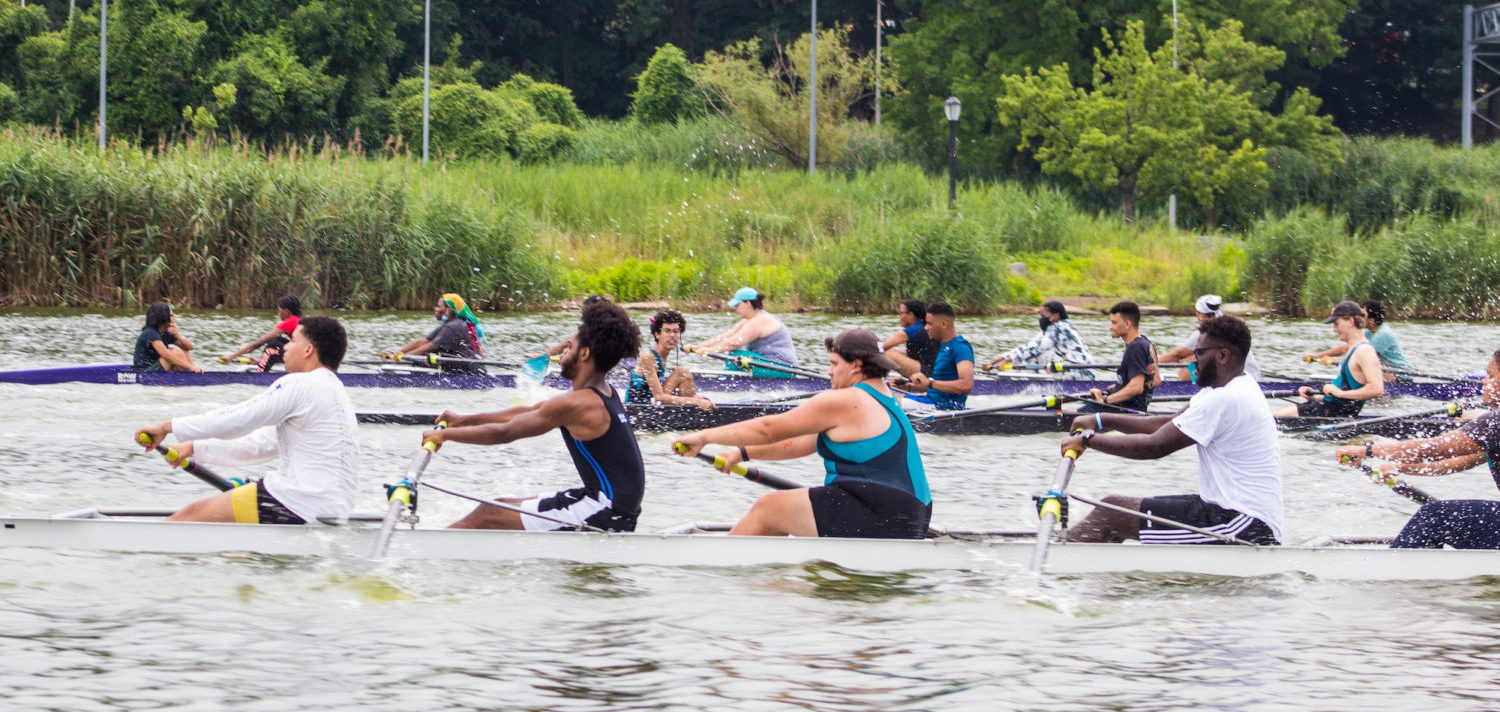To all of our board members, supporters, and those new to Row New York, thank you.
We were thrilled to celebrate our athletes and honorees at this year’s Fall Benefit. Together, we raised over $500,000 for Row New York’s programs. Your commitment to helping our student-athletes find their voices and share their stories allows Row New York to offer our incredible community of athletes the support they need to thrive.
Below, watch Katherine Valdez, Row New York adaptive rower, tell her story (and receive a standing ovation) at the Fall Benefit.
In her blog, Katherine talks about how she found Row New York, what changes she saw in herself since becoming a rower, her most recent race, and how programs like these help to empower the disabled community.
Katherine Valdez
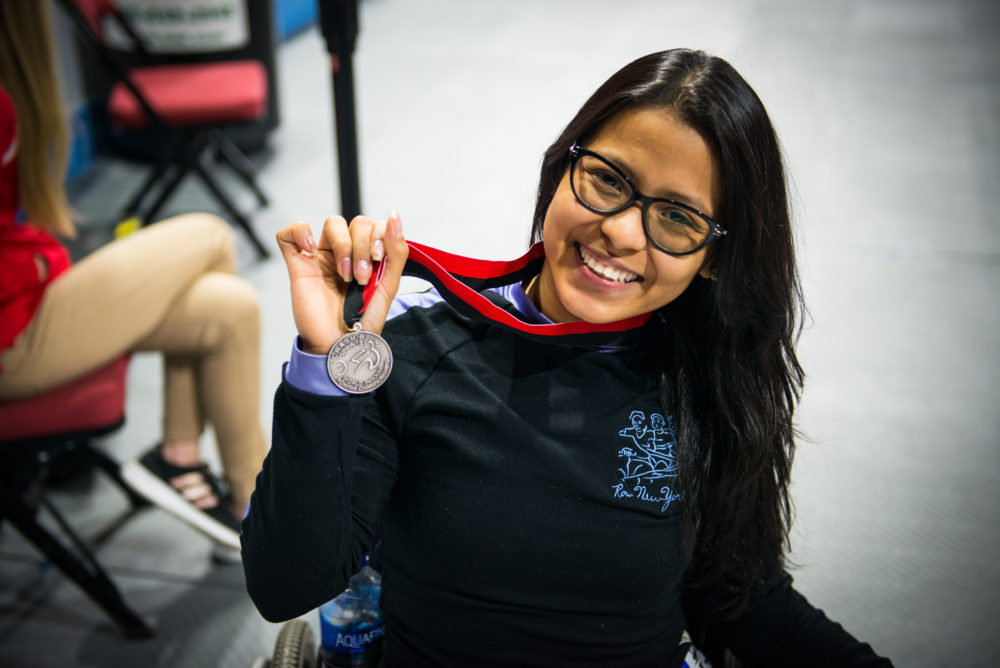
My name is Katherine Valdez. I’m 24 years old. I am from Guayaquil, Ecuador and I currently live in Briarwood, Queens. Last January, I finished my studies at ASA College and earned my Associate of Applied Science in Health Information Technology. During my free time, I like to play different sports, discover new places, spend time with my family, and play with my kitten, Morpheus. One of my favorite sports is rowing, but I also like to play tennis, basketball, and handcycle. I just joined the New York Achilles Handcycle program and I am very excited to start competing in marathons.
Discovering Row New York
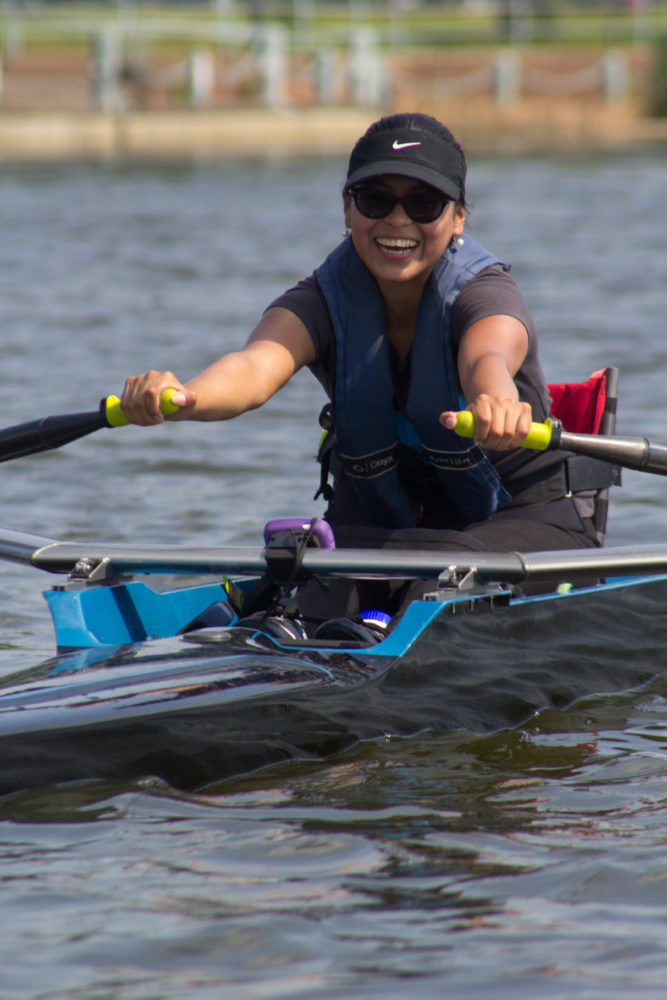
I started rowing in the summer of 2016. Before I rowed, I played tennis in the wheelchair tennis program at the USTA Billie Jean King National Tennis Center. There, I met John Hamre, the President & Co-Founder of Wheelchair Sports Federation. He always encouraged all the athletes to practice different sports and stay active. One day, he invited me to go to Queens College for an adaptive sports open house. That’s where I learned about Row New York.
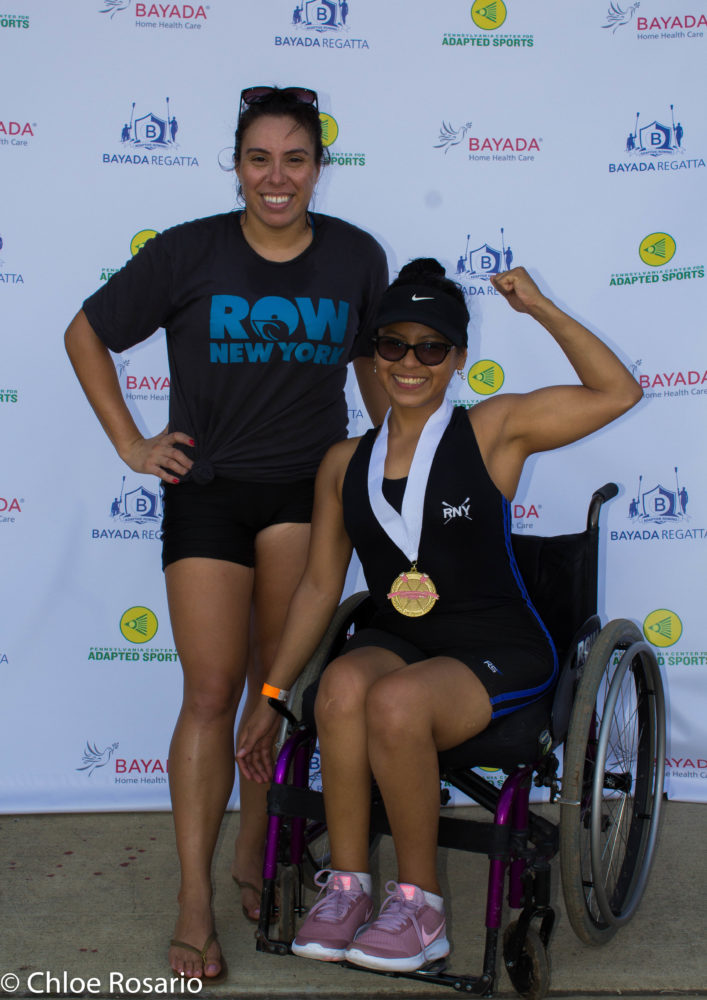
I remember standing to the side and looking at other people on the erg. I wondered ” that seems difficult! How will I do that? rowing? Can people in my condition row?” After thinking a lot and seeing that others were having fun, I decided to approach and give it a try. A Row New York volunteer explained how the erg works and what I should do. After I tried it, I saw that the erg doesn’t bite (ha-ha!) Afterwards, the volunteer gave me a flyer with information about Row New York’s recreational adaptive program.
After that day, I checked the Row New York website for more information about the mission and vision of the organization, the location, and their adaptive programs. After reading, I found an amazing and inspiring video entitled “Doing My Rowing Thing- Rehan’s Story”, which gave me goosebumps and extra motivation to go to my first practice.
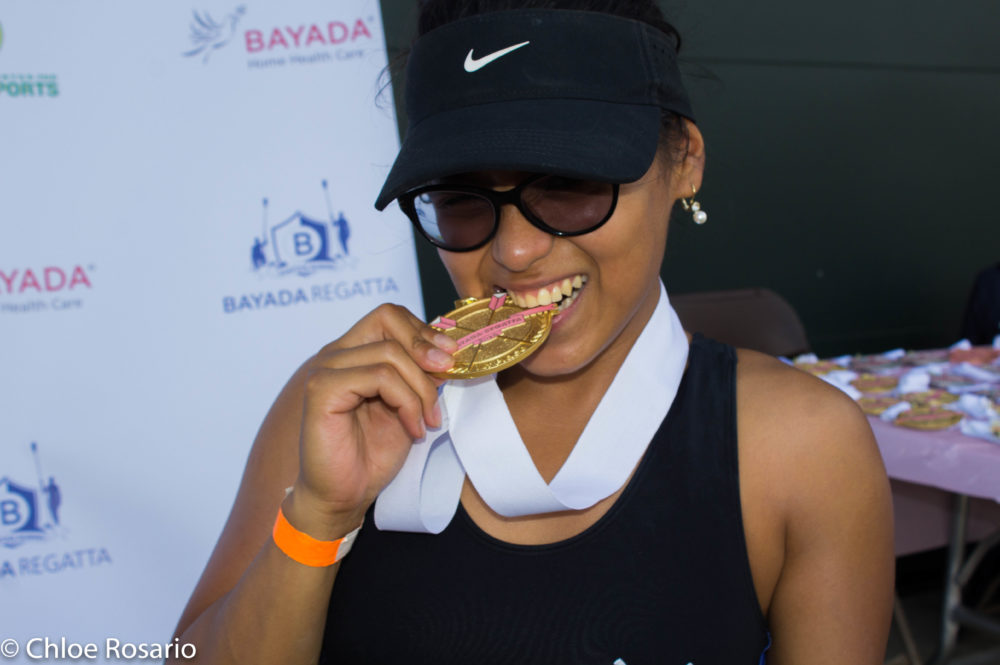
My first practice was really exciting; all the coaches and volunteers were kind and welcoming. I remember that I was very nervous because I did not know anything about rowing, but at the same time I was very excited to learn and try something new and completely different. Also, I love nature and ducks, so rowing seemed to be the perfect sport for me. I could not wait for the next practice on Saturday to keep learning about rowing and without realizing it, I was getting more involved with this sport.
Becoming A Rower
Since I became a rower, I have noticed many positive changes in me, physically, psychologically and even emotionally. When I started rowing, I must say that not only was I excited to learn or try something different, but I was also looking for something that would keep me active, fit and help me lose a few pounds. Over time, I changed this superficial mentality and I learned that it doesn’t matter how your body looks but what matters is how your body feels. I remember dieting and skipping meals to keep myself in “good shape” but I felt tired all the time and suffered from anemia, which is terrible! I was destroying my metabolism.
After learning this lesson, I began to eat well, hydrate, and, above all, I began to “listen to my body”. This is a phrase that my coach constantly repeats during practices and, at first, I did not know what it was that she wanted to say with that. With time, I managed to understand it and put it into practice, as a result, I now enjoy good health, more energy, and a stronger upper body. This not only helps me with my rowing performance but also helps me improve my wheelchair transferring skills, which facilitates my daily living activities.
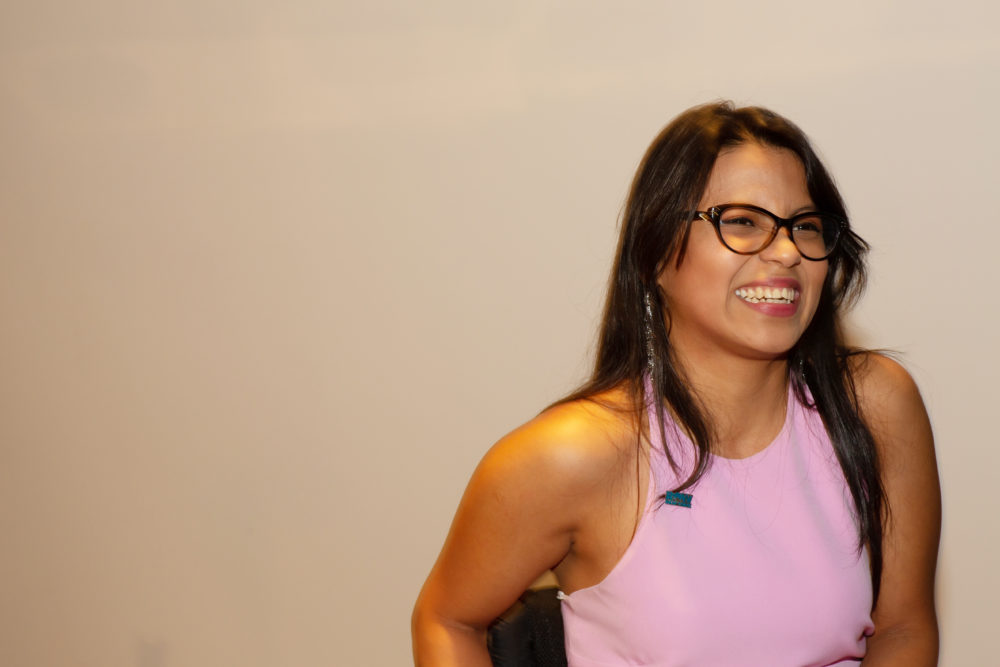
In addition to the physical changes, I have also experienced important psychological and emotional changes. In rowing, I started to become very disciplined and determined. Every time I go to practice, I already have a set goal for that day or for that week. I learned to have more self-confidence and better self-esteem. In the beginning, I was very shy during practices and questioning whether I was going to be ready for the next competition. I must say that I have the best coach ever, who has always believed in me and in my potential, and who has given me the necessary support that I sometimes need to believe in myself and my abilities. Their feedback always with respect, patience, and at the right moment. My coach knows how to push my limits without overwhelming me.
BAYADA Regatta
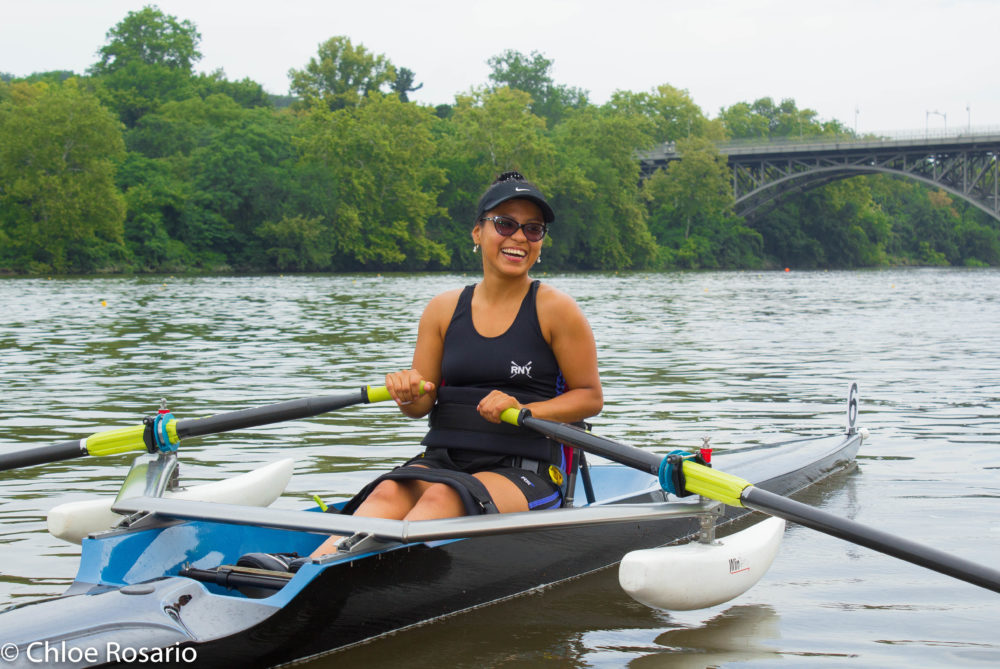
BAYADA Regatta is always a such a great experience. This was my second time racing there, however, this was my first time racing 1000 meter in a single scull, all by myself without anybody in the bow seat to help me steer.
This race was very challenging and significant for me because here I was going to test my skills as para-rower. It was going to be just me and the boat, no excuses. While I already knew that I was going to receive a Gold medal since I was the only woman in the PR1 single event (Unfortunately. I hope to see more athletes next year, let’s go girls!) I also knew that I had to do my best to set good results, I had to bring the erg to the boat to achieve it. Even though I was the only woman in this event, that did not mean I was going to be alone on the lake, and on the contrary, I was going to race alongside with PR1 Men single event.
I was a little nervous and concerned since I did not have much practice on the water due to the bad weather in New York. My biggest fear was finishing in the last place and getting defeated by the men. I had something clear: no matter what, I was going to row with all my strength and when I felt that I could no longer row with my arms, I would start rowing with my heart. That was how I finished 1000 meters in six minutes and thirteen seconds and I came in second place against the men.
Impact of Sports On Disabled Community
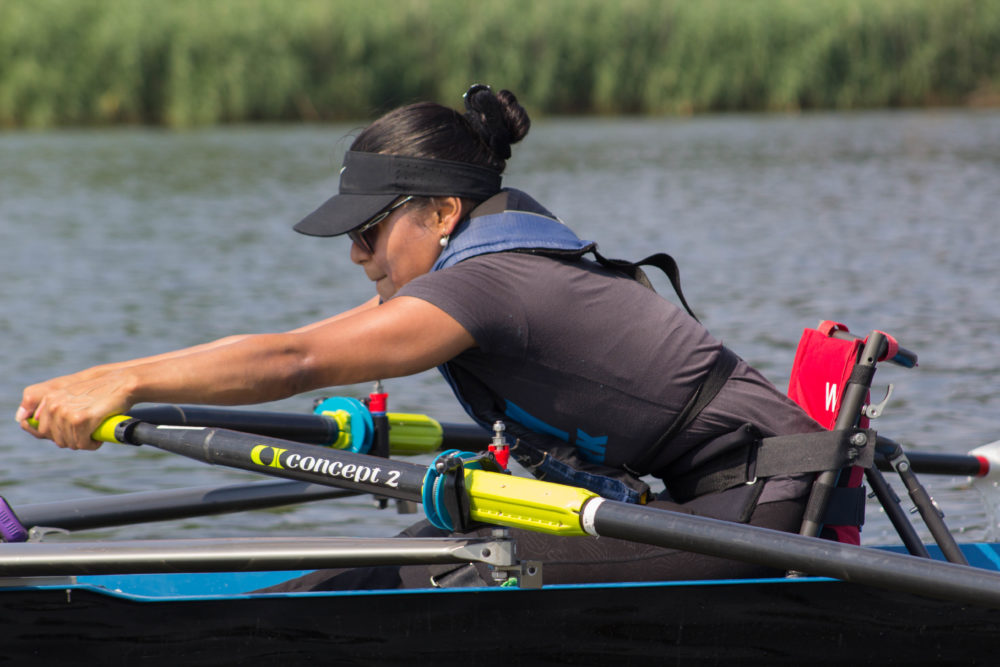
The impacts of this and similar programs on the disabled community are incredible! Many people believe that these programs exist only to keep people with disabilities busy but let tell you that they are totally wrong. These adaptive programs help people with disabilities discover or re-discover themselves. Living with a disability is not easy, especially when is a society out there telling you what you can’t do, putting barriers, creating labels, and reinforcing stereotypes which sometimes make people doubt their abilities. Thank God there are programs like this, where you can meet wonderful people who do not care
about what you can’t do, they focus on what YOU CAN DO, what can you improve, and how you can develop. They fully focus on your potential as an athlete.
It is a fact that adaptive sports empower people, I don’t have a doubt about that. I believe that the most valuable thing for a person with a disability is their freedom and independence. That’s something that adaptive sports can bring to our community. When you row, play tennis, basketball, volleyball, rugby, handcycle, rock-climb, swim, etc. you feel free, you feel powerful, independent and as consequence you will bring these feeling to your daily living. This is true even more so if you have a team that supports you, believes in you and in your potential. That team will understand you and will help you to find a solution if you are struggling with something, we do not need you to feel sorry for us, we need to be empowered and I was empowered by Row New York.
Looking Ahead
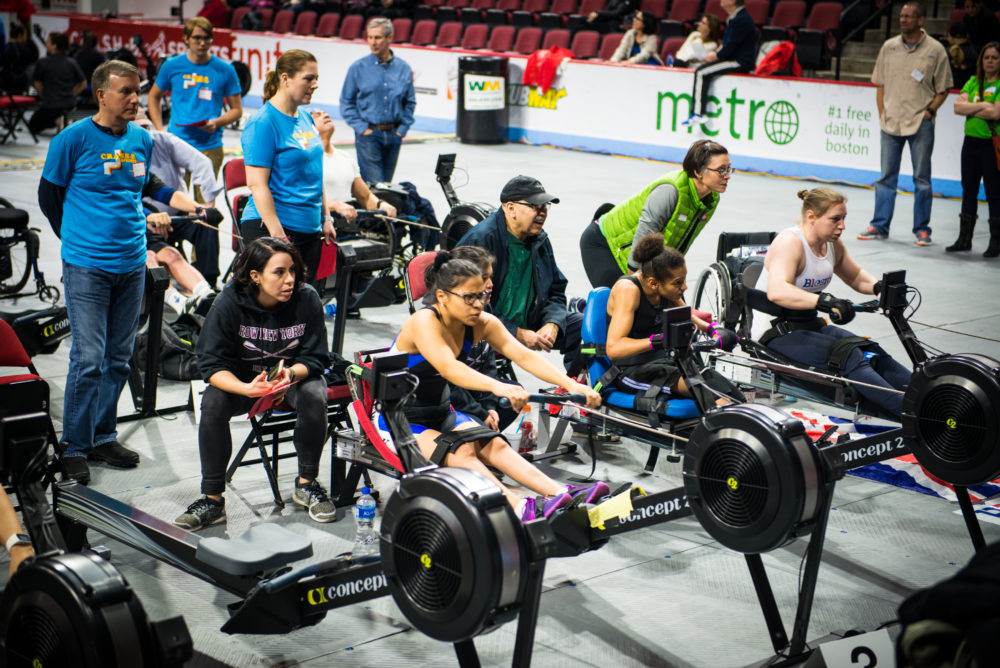
I am very excited about what the future holds for me, especially my future as para-rower. One of my biggest dreams, in which I am working hard, is to be part of the Para-Rowing National team and of course, to represent the USA in the Paralympics games. Even, I’m thinking about starting to try out the trials next year. I want to be the first para-athlete from Row New York to become a Paralympian and show the world what people with disabilities are made of.


